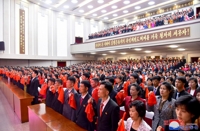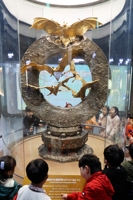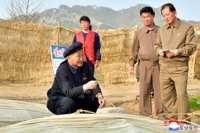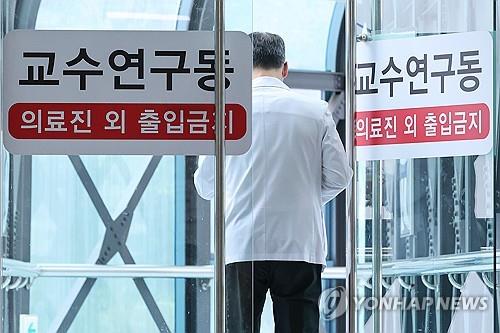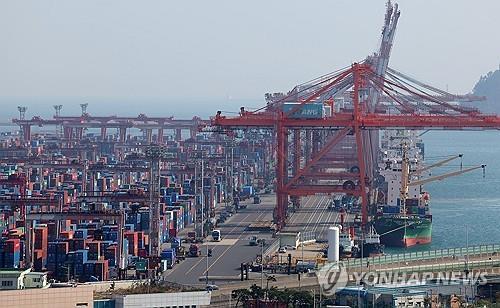(5th LD) Parties fail to compromise over 2018 spending bill
(ATTN: CHANGES headline, lead; REWRITES throughout with new info)
SEOUL, Dec. 2 (Yonhap) -- Rival parties failed Saturday to reconcile their differences over the government's spending plan for next year, dashing hopes for meeting the legal deadline for budget approval.
With the Saturday deadline approaching, their top negotiators sought a breakthrough in last-minute negotiations over the 429 trillion won (US$395 billion) bill, but they failed to compromise over a set of sticking points, such as proposed overlays for job creation.
They decided to hold a parliamentary plenary session on Monday to possibly vote on the bill vital for President Moon Jae-in's priority policies to create jobs, improve public welfare and spur growth.
"I feel sorry to citizens for being unable to meet the deadline though we have tried our utmost not to miss it," Woo Won-shik, the floor leader of the ruling Democratic Party, told reporters.
Chung Woo-taik, the whip of the main opposition Liberty Korea Party (LKP), said the negotiators need a "cooling-off period" as all dug in their heels.
Despite the failed negotiations, the National Assembly held a plenary session at night to pass a series of uncontentious bills.
The budget bill was already sent to a parliamentary plenary session at noon Saturday under a cross-party agreement, a step to make it ready for a floor vote.
From the morning on, top negotiators of the ruling party, the LKP and the People's Party struggled to break the political impasse, but they refused to make any significant concessions.
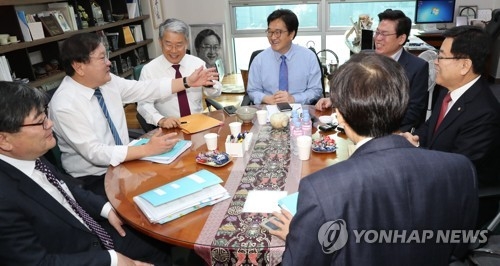
Top officials from the three major parties hold talks to narrow differences over the government's 2018 budget plan at the National Assembly in Seoul on Dec. 2, 2017. (Yonhap)
Major bones of contention are a proposal to use 534.9 billion won to support Moon's push to create 174,000 new public service jobs by 2022 and the 3 trillion won "job stability" plan to bankroll next year's minimum wage increase.
During the negotiations, the three parties wrangled over how much they would scale back the initial plan to increase some 12,000 public-service jobs next year.
The LKP and People's Party pushed to curtail the number to 7,000 and 9,000, respectively, but the ruling party's offer was at 10,500.
Regarding the job stability plan, opposition parties demanded it be applied for only one year. The government and ruling party balked at it.
Another sticking point was the ruling bloc's push to increase tax rates for top-earning individuals and businesses. Opposition parties demanded that the proposed income tax rise be introduced in 2019 rather than next year.
The original tax reform bills aim to raise the corporate tax rate for businesses with a taxable income of 200 billion won or more to 25 percent from the current 22 percent, and the income tax rate for individuals earning taxable income exceeding 500 million won to 42 percent from the current 40 percent.
The ruling party needs the opposition bloc's support for the budget passage as it has only 121 parliamentary seats, far short of a majority in the 299-member legislature.
The presidential office Cheong Wa Dae called on the rival parties to show "spirits of cooperative politics," noting that the bill concerns citizens' livelihoods and represents the president's philosophy for statecraft.
If the parties' negotiations go beyond the Jan. 1 start of the fiscal year the government would have to devise a provisional budget that can be used only for mandatory expenditures as stipulated by law.
sshluck@yna.co.kr
(END)
-
 S. Korea marks 30th anniv. of Korean Pavilion at Venice Biennale with contemporary art
S. Korea marks 30th anniv. of Korean Pavilion at Venice Biennale with contemporary art -
 Artist Lee Bae captures ethereal Korean aesthetics at Venice Biennale
Artist Lee Bae captures ethereal Korean aesthetics at Venice Biennale -
 Ateez member Yunho throws first pitch at MLB match between Dodgers, Mets
Ateez member Yunho throws first pitch at MLB match between Dodgers, Mets -
 Gov't likely to accept university chiefs' request to lower med school enrollment quota
Gov't likely to accept university chiefs' request to lower med school enrollment quota -
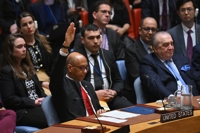 S. Korea supports resolution backing U.N. membership of Palestine
S. Korea supports resolution backing U.N. membership of Palestine
-
 Artist Lee Bae captures ethereal Korean aesthetics at Venice Biennale
Artist Lee Bae captures ethereal Korean aesthetics at Venice Biennale -
 S. Korea marks 30th anniv. of Korean Pavilion at Venice Biennale with contemporary art
S. Korea marks 30th anniv. of Korean Pavilion at Venice Biennale with contemporary art -
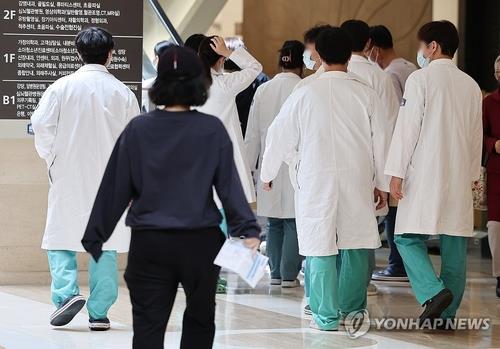 Gov't likely to accept university chiefs' request to lower med school enrollment quota
Gov't likely to accept university chiefs' request to lower med school enrollment quota -
 Looming weekly closure of major hospitals feared to worsen medical service crisis
Looming weekly closure of major hospitals feared to worsen medical service crisis -
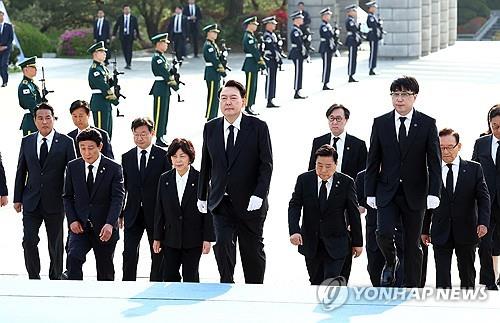 Yoon's approval rating sinks to lowest point since taking office
Yoon's approval rating sinks to lowest point since taking office
-
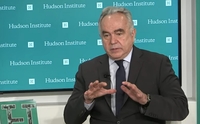 U.S. will take steps for three-way engagement on nuclear deterrence with S. Korea, Japan: Campbell
U.S. will take steps for three-way engagement on nuclear deterrence with S. Korea, Japan: Campbell -
 (LEAD) Hybe to file complaint against sublabel executives over internal conflict
(LEAD) Hybe to file complaint against sublabel executives over internal conflict -
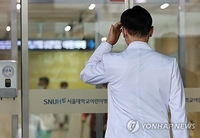 Looming weekly closure of major hospitals feared to worsen medical service crisis
Looming weekly closure of major hospitals feared to worsen medical service crisis -
 Author of ADOR's 'internal document' refutes allegations of spinoff plot
Author of ADOR's 'internal document' refutes allegations of spinoff plot -
 U.S. SPACECOM commander says N.K.'s satellite launch violates U.N. resolutions
U.S. SPACECOM commander says N.K.'s satellite launch violates U.N. resolutions
















